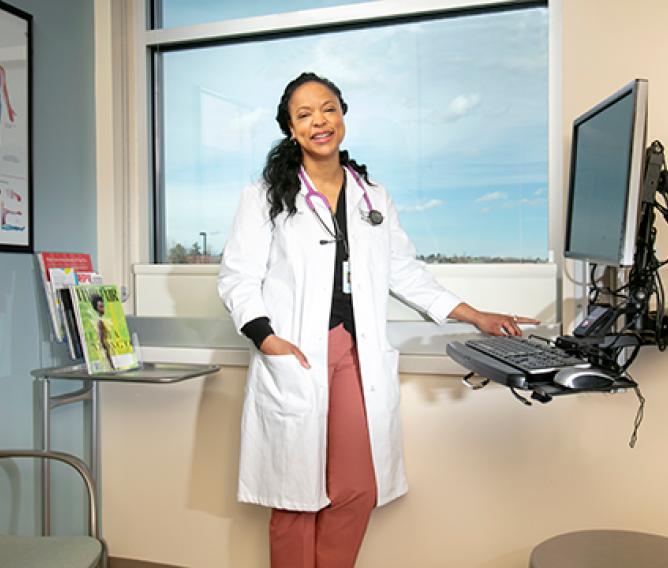Chances are, you hear stories of cancer regularly in your life. As the second leading cause of death in the U.S., it may feel like there’s little you can do about this disease. Prevention and early detection are two of the most powerful tools you can use in combating cancer, often long before any physical signs would be noticeable.

Find a Primary Care Provider Near You
It’s important to talk with your doctor about what screenings that are appropriate for you. Regular visits with a primary care doctor are an important way to assure you are on track with preventive care and screenings. Schedule your annual exam with your doctor today.
The annual exam with a primary care provider is a great opportunity to focus on prevention and screening. You and your doctor get a chance to discuss any changes or concerns you’ve had with your health and come up with a plan for any further screenings that are appropriate. It also gives your doctor a chance to check your vital signs, such as blood pressure and heart rate, general appearance and perform other routine tests that can detect issues that may not be causing noticeable symptoms.
The American Cancer Society recommends that women age 45 to 54 get a mammogram every year. Women may begin yearly mammograms at age 40 if they choose. Women age 55 or older may continue annual mammograms or switch to every two years. You and your doctor can discuss the schedule that’s right for you. Some women who are at higher risk for breast cancer due to family history or other factors may benefit from additional screening. All women should become familiar with how their breasts look and feel normally so they can promptly report any changes to their doctor. Read more about mammography.
We’re inspired to keep lungs healthy. The CommonSpirit Mountain Region Cancer Care Network is offering a Healthy Lung Screening Program to individuals at high-risk for developing lung cancer. Our goal is to screen as many high risk individuals as possible. More about healthy lung screenings.
Women should begin undergoing cervical cancer screening at age 21. Women between ages 21 and 29 should have a Pap test every three years. Women between ages 30 and 65 should have a Pap test plus an HPV test every five years. Women over age 65 who have had regular cervical cancer testing with normal results do not need to be tested. More about women's health.
A colonoscopy can detect polyps and other early signs of colorectal cancer. It’s typically recommended for individuals age 50 and older to have a colonoscopy every 10 years. More about colonoscopy.


